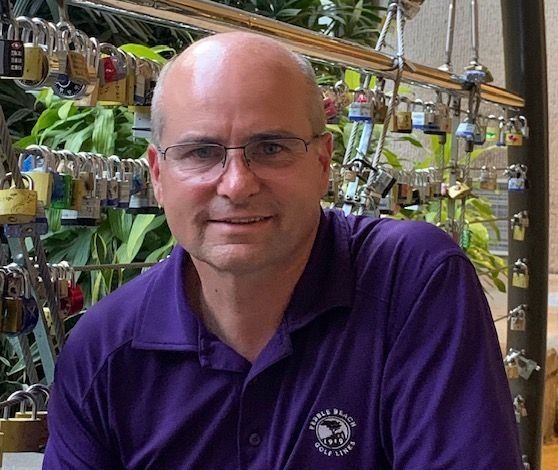Learn more about my book "The Courageous Ask"
Leaders, Sometimes it is Profitable to Look in the Rear-View Mirror
For most of us, it's easy to think of examples of the damage that is done when a leader focuses on the past, those things in the rear-view mirror. In fact, there is a commonly used piece of advice that is passed along in business and life: “Many car accidents happen because the driver is looking too much in the rear-view mirror.”
But, as part of a proactive approach in preventing the fall of Christian nonprofit leaders, there are two areas of the past I highly recommend leaders continually visit. Both involve how a leader rose to their level of leadership, those parts of life they may neglect as their star rises.
Brendan Bridges of Richvale Church in California says, “The things we neglect lead us to a place of regret.” Fallen leaders can always look back on their life before their fall to find things they neglected along the way.
These neglected things are typically what allowed them to develop the character and skill to rise to the level of leader. As someone once told me, “Helicopters don’t drop people off on top of the mountain of success.”
(This blog focuses on starting a conversation centered on preventing the fall of nonprofit leaders. I write it from a Christian perspective, but all leaders will benefit. Be sure to sign up to receive these articles via email every Tuesday at
briankreeger.com as well as taking a look at previous blog articles. In addition to receiving these articles two days before they hit social media, you will receive the article "5 Early Indicators of a Christian Nonprofit Leadership Fall" along with the Contents, Introduction and the Appendix (My story) of my book,
The Courageous Ask: A Proactive Approach to Prevent the Fall of Christian Nonprofit Leaders.)
You see, too many times when a leader experiences a modicum of success- a place where their goals for themselves and the organization are being achieved- those things that crafted them into the leader they developed into become a blur in the peripheral vision of the goal that has become their focus.
Many times, when this begins to happen, a slip into a downward spiral may be on the horizon.
The rest of this article is written as a challenge for leaders to take a look at these two areas in their own life.
Number One, Spiritual Health
A person who has risen to the level of executive leadership got there through a process. God has taken a Christian executive through a process of spiritual awakening, study, trials, and life experiences to get them there. Much of this process involved instruments of spiritual growth, such as bible study, devotions, church attendance, Christian friends and influencers, etc.
Too many times the motivation toward these instruments becomes skewed or misplaced as the executive drives toward a goal of personal or organizational success. Or, frankly, success (as they define it) leaves them feeling as if they no longer need those things that got them where they are. Proper humility escapes them.
“When we lead a Christian organization, we tend to substitute that [Christian leadership] for real spiritual sustenance. The work becomes your devotions or time with God because you are working full time for God,” one nonprofit executive expressed to me.
This current Christian nonprofit executive went on to say that during his lowest point in life he wasn’t focusing on himself spiritually, and that affected relationships with family because he wasn’t strengthening his relationship with God. “I was working for God and not with God,” he added. “I was punching a clock for God.”
And this is backed up by Pastoralcareinc.com, which notes, “28 percent of pastors report they are spiritually undernourished.”1
Before my fall, and during the time I started to slide away from my relationship with God, I found myself visiting a different church every week speaking on behalf of the ministry, building awareness of what we were doing. I was missing family small groups, and even my men’s group, as I spoke to the same groups in other churches.
Sure, it was good short term for the ministry God had called me to, but it became spiritually damaging as I left my personal accountability structure behind.
Number Two, The Family Blur
Sorry, single folks,
at this point I am going to focus on those who are married. But you have close family, and you have family who have been with you through thick and thin. So you will find application here.
In most cases, besides the role of Christ in the life of a Christian leader, the love, support, understanding, and counsel of their spouse has had the biggest influence on who they are at the time of taking the helm of an organization.
Executive leaders many times take that love, support, understanding, and counsel for granted. This ability to take a partner for granted extends to the rest of the family as well. But the spouse takes the brunt.
A nonprofit executive cannot expect their spouse to understand fully what they are going through in their position. This is true and part of human nature. But many times the human nature of an executive spouse is simply protecting territory, as the affections and time of their spouse is allowed to be stolen by the nonprofit.
This certainly causes friction in the relationship.
And remember, to an executive’s spouse, the executive is a spouse first. The nonprofit executive part is much lower on the list of properly prioritized roles in the life of their spouse.
And rightfully so. Driven executives get this backward many times, as they find their primary focus to be on organizational goals. Everything else is a blur, including the very family who gave them the stability to take risks and rise to the level they currently reside in.
Let me repeat….family (and spiritual disciplines) can become a blur on the periphery of an executive who is focused on a goal.
Harvard Business School professor Rosabeth Moss Kanter says, “Ambivalence about family responsibilities has a long history in the corporate world.” And this same ambivalence stretches into the nonprofit world. Executives are torn.
Many leaders have difficulty prioritizing their time. They assume their family has the same passion they do concerning the mission, and are willing to sacrifice right along with them.
Guess what? Sometimes they aren’t.
Most leadership falls come under the category of “moral failure.” There is no one closer to the challenges in your life that fall into that category than your spouse.
Executive, listen to your spouse. And not just what they are saying. They communicate in many ways. Use the knowledge you have gained in being a student of your spouse as you watch and listen to them. They see things you don’t.
So, executive, how do you measure up in these two areas? Are you able to check the box, without justification, that these two areas are areas you continually monitor, and that you take action if needed?
In all of my research, and through many interviews, I have found these two areas become the lead indicators of a potential fall. How is the Christian leader’s spiritual life, and how is the Christian leader’s family life? Do these two foundational areas still rise to the top of their priorities, above goals for the organization and their career?
If executives maintain their focus on these two areas- two areas that made them who they are in their position- their success will be long-lasting. But it is their choice.
What is your choice?
Be Courageous!
Be Proactive!
1“Statistics for Pastors.” Statistics in the Ministry. Accessed 5-1-21. https://www.pastoralcareinc.com/statistics/.
Be sure to sign up to receive these articles via email every Tuesday at
briankreeger.com. In addition to receiving these articles two days before they hit social media, you will receive the article "5 Early Indicators of a Christian Nonprofit Leadership Fall" along with the Contents, Introduction and the Appendix (My Story) of my book,
The Courageous Ask: A Proactive Approach to Prevent the Fall of Christian Nonprofit Leaders.
#LeadershipFall #LeadershipSurvival #NonprofitRelationships #ProactiveApproach #LeadershipStruggles #LeadershipBattles #ChristianExecutiveLeader #ChristianLeader #CourageousAsk #Proactive #ProactiveLeadership #NonprofitLeadership #ExecutiveLeadership #ChristianLeadershipFall #LeadershipFoundation #RearViewMirror #FamilyBlur #LeaderSpiritualHealth






